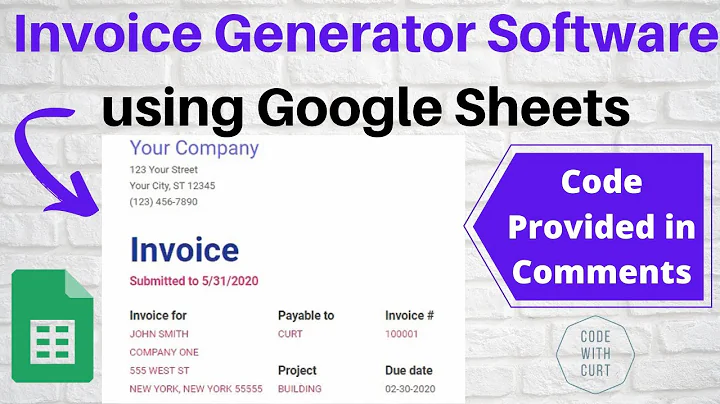The Ultimate Comparison: Shopify vs WordPress
Table of Contents
- Introduction
- Main Differences between WordPress and Shopify
- Choosing Between WordPress and Shopify
- Pricing Comparison
- Template and Theme Comparison
- Building a Website with WordPress
- Building a Website with Shopify
- Additional Fees on Shopify
- Plugins and Applications Comparison
- SEO and Blogging Capabilities
- Conclusion
Article
Introduction
Hey there, guys! My name is Marcus, and in this video, I'm going to compare Shopify with WordPress. I'll start by discussing the main differences between the two platforms and the factors to consider when choosing between them. Then, I'll compare their pricing plans, templates, and plugins, as well as their website-building capabilities. So let's dive in and explore the world of Shopify and WordPress.
Main Differences between WordPress and Shopify
When it comes to building a website, the biggest difference between Shopify and WordPress lies in the speed and simplicity of the process. WordPress is an open-source platform, while Shopify provides you with a ready-to-use template. With Shopify, you can choose a template, buy a plan, add products, and start marketing within minutes. On the other hand, with WordPress, you need to find a domain, good web hosting, a suitable template, and various plugins before you can begin building your website. This difference in complexity should be considered based on your needs and preferences.
Choosing Between WordPress and Shopify
Choosing between WordPress and Shopify depends on your requirements and technical expertise. If you prefer a simple website that can be quickly built and easily managed, Shopify is a great option. However, if you want more control over your website and have the technical knowledge to handle the setup and maintenance, WordPress might be the better choice. Consider your desired level of customization, ease of use, and the time you're willing to invest in website development.
Pricing Comparison
When comparing pricing plans, it's essential to consider the additional fees associated with Shopify. While WordPress itself is free, hosting and domain costs are required. Shopify offers different plans, each with its own pricing structure, including transaction fees on top of the standard charges. On the other hand, WordPress-based online stores using WooCommerce can avoid such additional fees. Carefully evaluate your budget, specific needs, and the long-term costs associated with each platform.
Template and Theme Comparison
Both Shopify and WordPress offer a wide range of high-quality templates and themes for building visually appealing websites. Shopify is known for its top-notch template collection specifically designed for e-commerce, while WordPress also offers impressive themes suitable for various purposes. Investing in a good template, whether on Shopify or WordPress, is essential for an effective and attractive online store. Keep in mind that buying a premium template can cost around $100 to $150, but it's worth the investment for a professional-looking store.
Building a Website with WordPress
Building a website with WordPress involves a series of steps. To get started, you'll need to secure a domain, find reliable web hosting, select a suitable template, and install the necessary plugins. WordPress offers a variety of plugins that enhance the functionality of your website, such as page builders like Elementor. While the initial setup of WordPress requires more effort, it provides you with complete control over every aspect of your website's design and functionality.
Building a Website with Shopify
Unlike WordPress, Shopify simplifies website building by providing pre-designed templates and a user-friendly interface. With Shopify, you can easily customize your website by adding sections, rearranging them, and making edits as needed. The intuitive drag-and-drop functionality allows you to create a visually appealing store without any technical knowledge. Shopify's ease of use makes it a popular choice for those who want to quickly launch an online store without the need for extensive web development skills.
Additional Fees on Shopify
One disadvantage of Shopify is the additional fees you may encounter when using certain payment providers other than Shopify Payments. For example, if you choose PayPal as a payment method, both PayPal and Shopify will charge transaction fees. These fees can add up, especially if you're on a basic Shopify plan. In contrast, WordPress-based online stores using WooCommerce can avoid such additional fees. Consider these extra costs when deciding which platform is more suitable for your business.
Plugins and Applications Comparison
Both Shopify and WordPress offer a vast selection of plugins and applications to enhance the functionality of your website. Shopify has a variety of applications created by third-party developers specifically for their platform. These apps cater to various business needs, including marketing, inventory management, and customer support. WordPress also has a wide range of plugins available, allowing you to customize your website to fit your specific requirements. When it comes to plugin availability, both platforms offer rich ecosystems, ensuring you'll find the tools you need.
SEO and Blogging Capabilities
From an SEO perspective, both Shopify and WordPress provide similar capabilities. Both platforms enable you to optimize your website for search engines by easily customizing meta tags, URLs, and headers. Additionally, both platforms support blogging, allowing you to create informative and engaging content to attract and retain customers. WordPress, however, has an advantage when it comes to content-focused websites or combining blogging with e-commerce, as it offers a wider range of plugins specifically designed for SEO and content management.
Conclusion
In conclusion, both Shopify and WordPress are excellent options for building a website, each with its own strengths and considerations. Shopify provides a streamlined and user-friendly experience, making it ideal for beginners or those looking for a quick setup. On the other hand, WordPress offers more flexibility and control over your website's design and functionality, making it suitable for advanced users or those with specific requirements. Carefully evaluate your needs, budget, and technical expertise to choose the platform that best aligns with your goals and preferences. Happy website building!
Highlights
- Shopify and WordPress are two popular platforms for building websites, each with its own advantages and considerations.
- Shopify simplifies the website-building process with ready-to-use templates and a user-friendly interface.
- WordPress offers more customization options and control over your website's design and functionality.
- Consider factors such as pricing, additional fees, template availability, plugins, SEO capabilities, and ease of use when choosing between Shopify and WordPress.
- Both platforms have their strengths and can help you create a professional and effective online presence.
FAQ
Q: Is Shopify better than WordPress?
A: It depends on your specific needs and preferences. Shopify offers a more streamlined and user-friendly experience, making it suitable for beginners and those looking for a quick setup. On the other hand, WordPress provides greater customization options and control over your website, making it ideal for advanced users or those with specific requirements.
Q: Does Shopify charge additional fees?
A: Shopify may charge additional fees for using certain payment providers other than Shopify Payments. Transaction fees may apply when using third-party payment gateways like PayPal. However, WordPress-based online stores using WooCommerce can avoid these additional fees.
Q: Can I use plugins with Shopify and WordPress?
A: Yes, both Shopify and WordPress offer plugins or applications that enhance the functionality of your website. Shopify has a vast selection of applications developed specifically for their platform, while WordPress has a wide range of plugins available to customize your website according to your needs.
Q: Which platform is better for SEO and blogging?
A: Both Shopify and WordPress provide similar capabilities when it comes to SEO. They allow you to optimize your website for search engines by customizing meta tags, URLs, and headers. However, WordPress has an advantage when it comes to content-focused websites and combining blogging with e-commerce, as it offers a wider range of plugins specifically designed for SEO and content management.


















